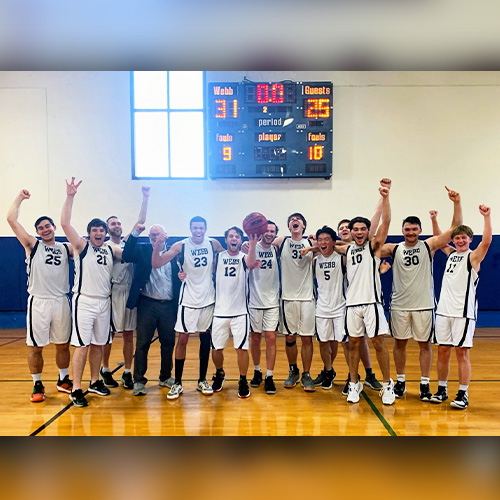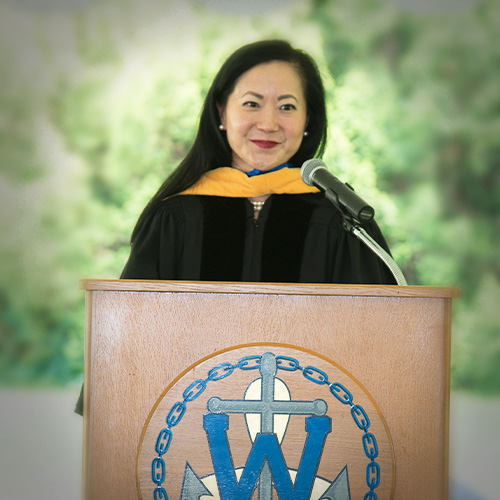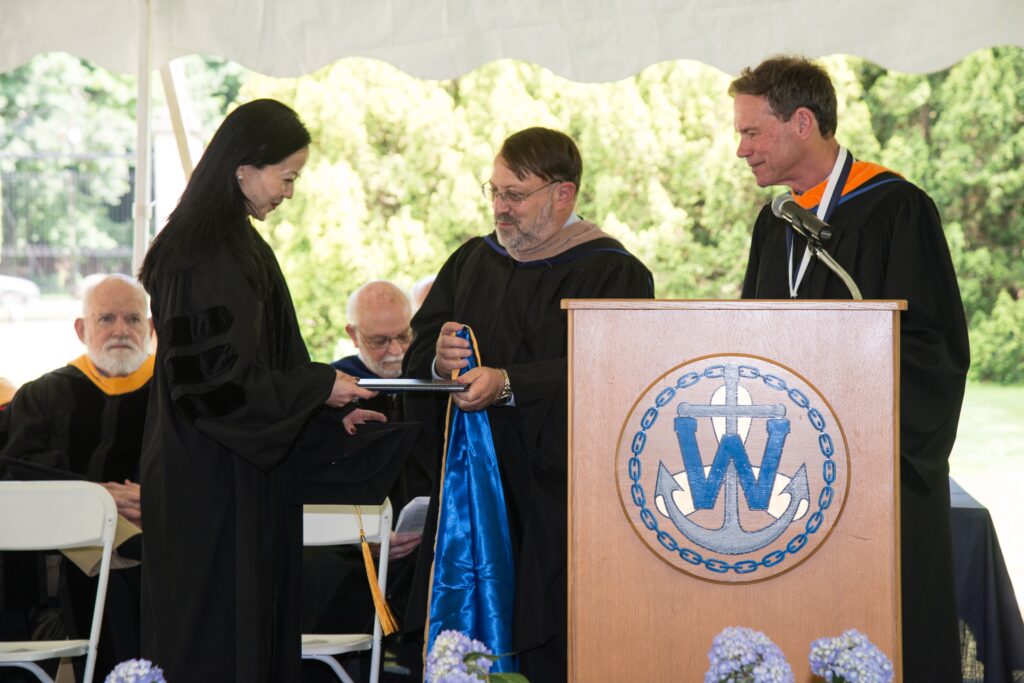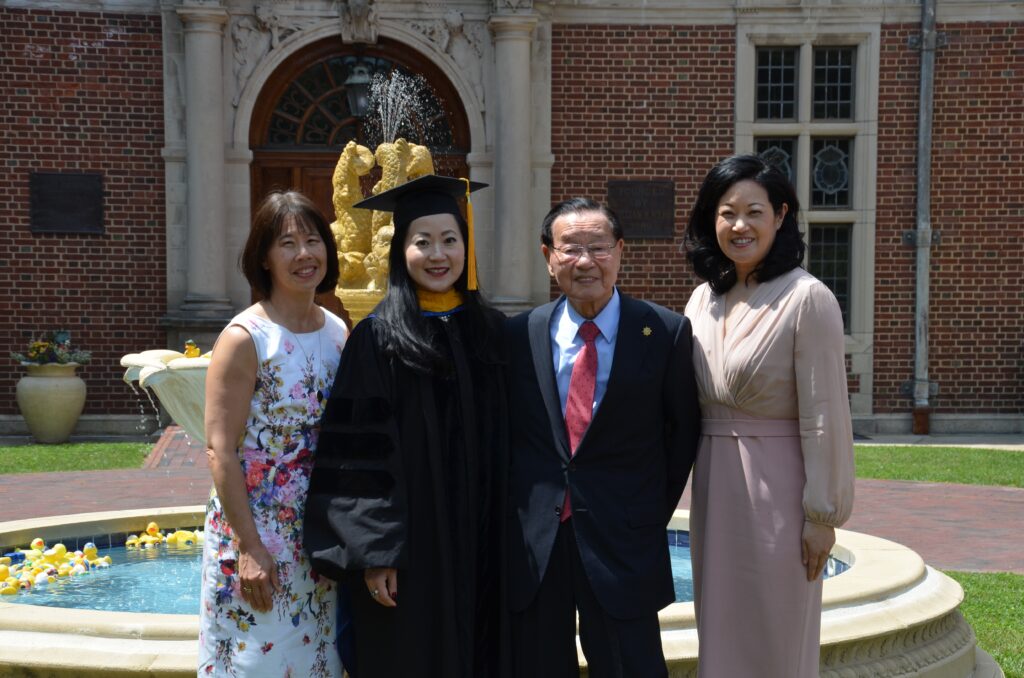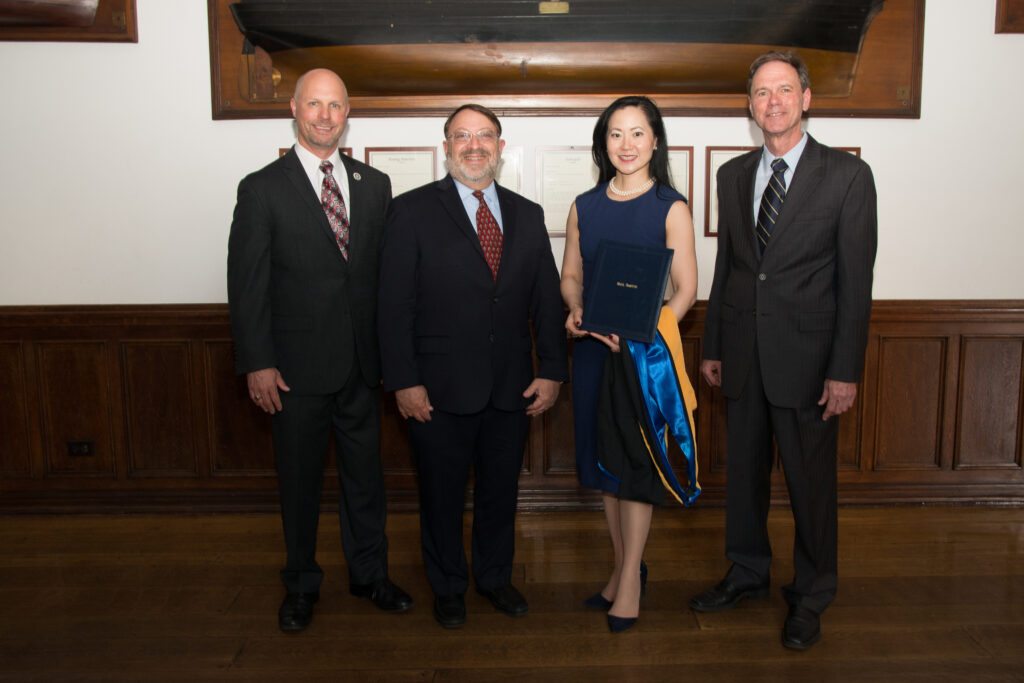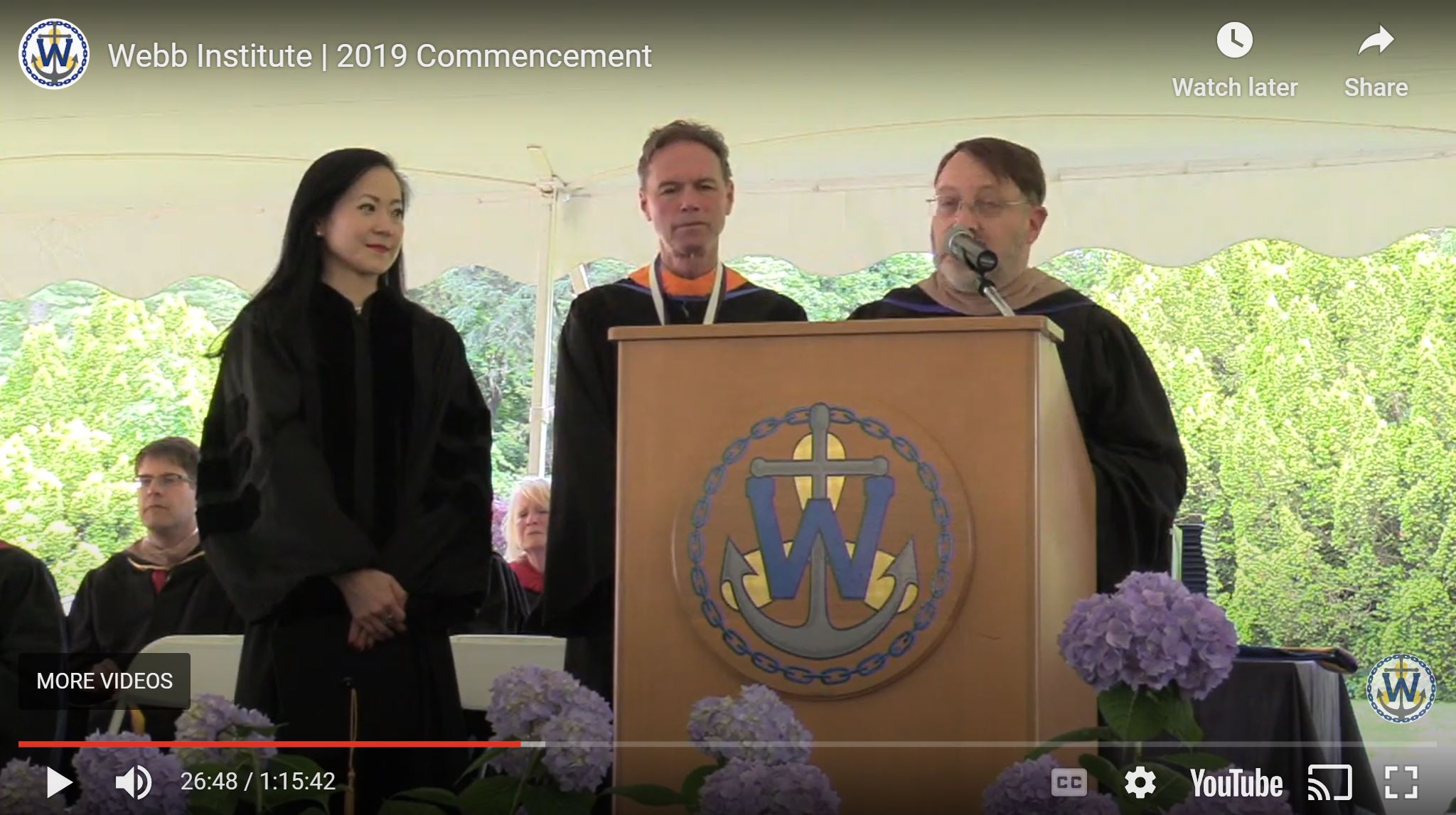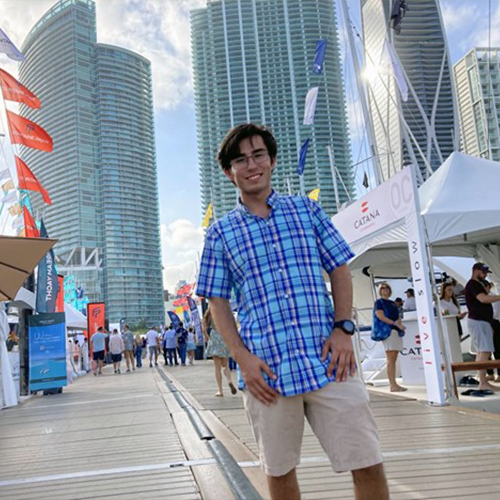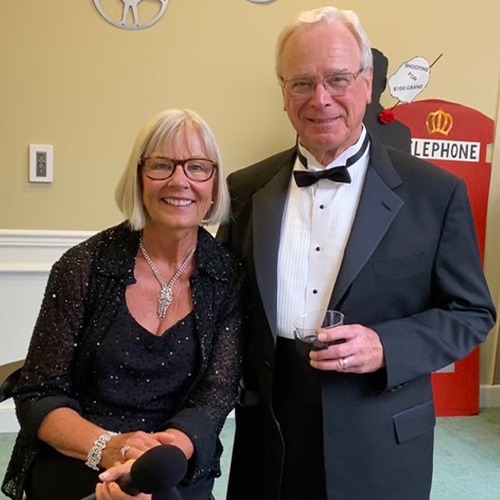Dawn of a New Era in Webb Basketball
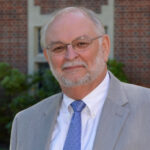 Written by Richard Harris
Written by Richard Harris
It was certainly at least twelve years ago, and maybe seventeen. Some think maybe longer. However that may be, on November 5, 2022, history was made at Webb. The basketball team won a game! The fall of 2022 saw an influx of freshmen players—Finn Ackerman, Caleb Breckenfelder, Kyle Breen, Ethan DesJardins, Jack Jackson, Aiden Kavanagh, Ryan Krimper, and Corbin Olney, and the return of juniors, Tim Lazouski, Max Mah, Jack Otto, the first appearance of junior Addison Pope. Four seniors—Gabe Allen, Jonathan Allen, Eric Heilshorn, and Mark Reed—anchored the starting team, with the fifth senior, Jacob Dillistin, always calm and dependable, a backup at the guard position. And then there was freshman Andrew Karafa, one of the very rare breed among Webb basketball players: he is 6’4” and he played high school basketball.
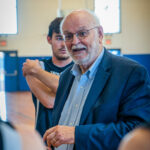
Coach Harris talking strategy with the team during a timeout.
So, when the first game of the 2022 season arrived, Coach Koleda and I were wondering how things might go. “Coach K’ had already led the soccer team to two victories in their season, which had ended only ten days before the basketball season began. Now it was up to the basketball team to try to find at least one win too. Unfortunately, true to the Webb tradition, the basketball players had not been able to shoot the 100 to 150 jump shots per day that is considered a bare minimum for development as an effective shooter.
Evidently, the players from the Culinary Institute hadn’t been able to do that either. At the end of a low-scoring first half, Webb led 15 to 10. With many shots being missed, it was important to control the backboards, and Gabe, Eric, and Mark did just that. When Culinary attempted a full-court press, Webb easily broke it. With his ballhandling skills, Jonathan was able to control the ball and set up the offense. As far as scoring was concerned, Andrew took care of most of that. He had ten points at the end of the first half.
A few minutes into the second half, with Webb holding its lead, Lauren Carballo began emailing the students on campus who weren’t at the game to come to the gym to see the possibility of a Webb win. Andrew added another eleven points in the second half. Down the stretch, Jonathan and Caleb added key baskets, and when the final buzzer sounded, the score was 31 to 25. I probably should have searched for a line from Shakespeare that would suit the moment, but I didn’t. I told Lauren that I was simply stunned.
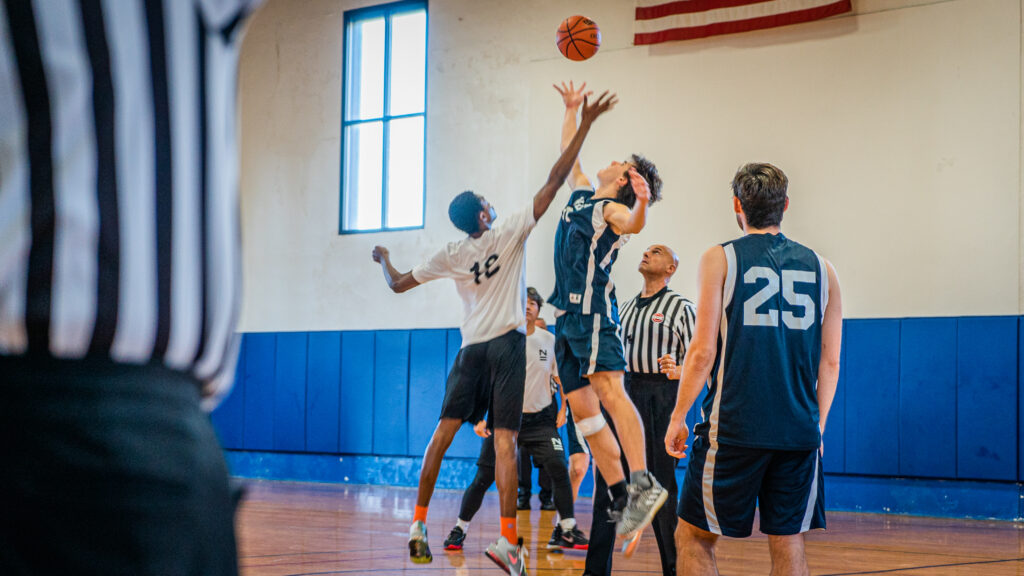
Andrew Karafa ’26 playing for a jump ball.
The remaining games proved more difficult, but I think everyone on the team will remember that day. The win was a tribute to the Webb players who came out for the team in the greatest number ever in Webb basketball history; to the leadership of the team captains, Jonathan and Mark; and to the players’ dedication and commitment to become better players and, win or lose, to enjoy playing the game.
Women’s Basketball
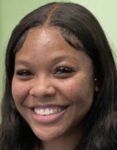 Written by Shayla McCombs
Written by Shayla McCombs

Rebecca Carson ’26 driving to the hoop during a Webb home game.
The 2022 Women’s Basketball team started their season with four returning Seniors. Captains Erin Postma ’23 and Kasey Kennedy ’23 led the way along with Natalie Webb ’23 and Tori Kim ’23. The team was led by our new Women’s Basketball Coach Shayla McCombs, our very own Shanna Hamilton’s daughter! She was an All-Star player in High School and College. The team learned a lot about the game and enjoyed their season. Hopefully, we can get enough interest in the coming years to keep the Women’s team afloat. Congrats to all of the Lady Webbies. Shayla will be the Assistant Coach of the basketball team alongside Richard Harris this fall.
Remembering Angela Chao, a Leader in the Maritime World and Honored Member of the Webb Family
It is with deep sorrow that we learn of the passing of Angela Chao, a distinguished leader in the shipping industry and a cherished member of the Webb community. Angela, the Chair and CEO of the Foremost Group, tragically lost her life in a car accident earlier this week at age 50.
At Webb, we had the privilege of celebrating Angela’s leadership and contributions to the maritime world. Webb awarded her a Doctor of Science (Hon.) degree and inducted her as an honorary alumna into the Webb Alumni Association in 2019. Her Commencement address served to inspire and educate our future leaders in the maritime industry and made a positive impact here at Webb and the world at large.
Joining Angela for that day’s award was her father, Dr. James S.C. Chao, the founder of the Foremost Group, a company that serves as a model for all in the maritime industry with exceptional customer service, superior performance, and pioneering environmentally sustainable practices in the shipping industry.
Angela’s passing is a profound loss not only to her family and the Foremost Group but to the entire maritime industry and the communities she touched. Webb Institute’s Chair of the Board of Trustees, Bruce Rosenblatt, reflected,
Our thoughts are with Angela’s family during this difficult time.
A leading force in the maritime world, Angela’s legacy is one of grace, compassion, and visionary leadership. Her profound love for her family, community, and the maritime industry shone brightly during her memorable and inspiring speech at Webb Institute in 2019. It was a proud moment for us when our Chairman of the Board, Bruce Rosenblatt, honored Angela with the degree of Doctor of Science (Hon) and inducted her as an honorary alumna into the Webb Alumni Association, a testament to her remarkable contributions and the deep bond she shared with our community. Angela was more than a distinguished guest; she was a cherished part of the Webb family.
Bringing Nutrition Education to Webb
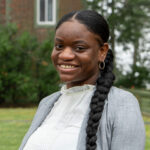 By Kayla Green
By Kayla Green
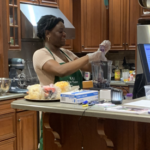
Kayla demonstrating proper smoothie-making technique.
Nutrition initiatives in college are crucial for promoting a healthy lifestyle and improving the overall well-being of the student body. I realized the importance of maintaining a balanced diet and making informed food choices when I was in college, and I continue to use what I learned to make health-focused decisions in my life. FLIK, Webb’s culinary service prides itself on putting “wellness center stage.” They provide a wide range of fresh fruits, vegetables, and whole grains on their menus and account for a variety of dietary restrictions and allergies. Having these options readily accessible makes it easier to prioritize nutritious meals and snacks; however, even so, knowing what to eat to maintain a healthy and balanced diet can be difficult.
At Webb, where students are regularly challenged by a rigorous curriculum, packed schedule, and academic stress, maintaining a healthy lifestyle is especially important, but can often fall behind other priorities.
This Spring, the Office of Admissions, therefore partnered with health educators, to educate our community on nutrition. This started with a Monday Lecture from Christina Brockett, MS, CNS, LDN, a licensed Clinical Nutritionist, who offers individual nutritional counseling, group nutritional programs, custom educational talks and presentations, and corporate wellness programs. Ms. Brockett also explored how nutrition impacts mental health. At the Monday Lecture, Ms. Brockett provided Webbies with insight on how to properly fuel their bodies and adopt good habits while trying to meet the demands of Webb’s rigorous academic program. Using Webb’s food menus provided by FLIK, she tailored her presentation to Webb’s current food offerings. Her ability to present the subject in an engaging way, while connecting it to the Webbie experience made the presentation relevant and memorable.
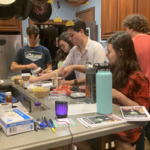
Webbies enjoying nutritional snacks.
Building off of this lecture, I had the opportunity to co-host several mini, cooking classes with Anna Boyd, MS, RD, RND (and Webb Professor Spenser Boyd’s wife), whose field of expertise is in nutrition and dietetics. Final exam season is typically a time when studying takes priority and healthy eating takes a backseat, which can impact student performance. I, therefore, developed a Brain Booster Smoothie Bowl demo series. Smoothie Bowls are a healthy, but tasty snack that can support students with the nutrients needed for a full day of studying.
The goal of these initiatives was to provide information that could equip students with the practical skills, nutritional knowledge, and appreciation for healthy eating. These classes have the potential to shape one’s approach to food and promote a balanced, nutritious lifestyle. By prioritizing the physical well-being of students, colleges can create a supportive environment that fosters healthy habits and empowers individuals to make positive choices for their long-term health and success.
New Student Journey: First Year at Webb
 by Hank Wolfe ’26
by Hank Wolfe ’26
Over the last year, I have received the honor of becoming a Webbie and learning what the title holds. It’s more than a nickname or label, being a Webbie is a way of life – one that includes the excessive wearing of flip-flops and late night burrito orders. Jokes aside, becoming a Webbie has shined a light for me on the power of community. I came into Webb excited and ready to work but with some hesitation-hesitation about figuring out how I would fit into the Webb family I had heard so much about. The idea of living with a hundred peers seemed daunting. My nerves would settle as I joined my new home.
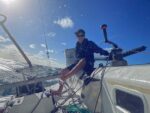
What a great first year it was! My classmates and I meshed from the start. Laughter became a norm in the design studio. Even on the nights when the homework seemed endless, the optimism and humor of my friends got me through. Learning to have fun and acknowledging the work will inevitably get done is the key to success at Webb. Having fun consists of different things for different people. Sailing is a huge part of it for me. Thanks to the opportunities the Webb sailing team and NEKA have provided, I traveled the east coast to sail, going as far as Key West with Zach Doerr ‘24 for a weekend during our Winter Work term.
The Webb family extends far beyond the classroom. I had the privilege of working at Michael Rybovich and Sons Custom Boatworks under Dusty Rybovich ‘10, the talented foreman, “Flipper,” and the rest of the crew. They eagerly took me under their wing, teaching me all there is to know about constructing sportfishing yachts. The hands-on experience I gained at the shipyard will last me a lifetime. While working in Florida, numerous other Webbies invited me to join them for dinner, and even stay with them for a weekend. The endless generosity from the Webb network was a constant reminder of how lucky I am to be a part of this community.
Going into sophomore year I am looking forward to meeting the next round of freshmen. I hope to lead by example, showing them the responsibilities of being a Webbie. I am excited to dive further into the NAME world, make more memories, and share laughs – all from the comfort of a pair of flip-flops.
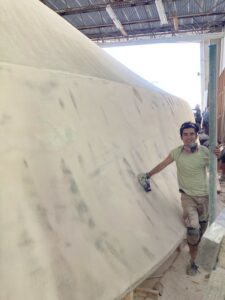

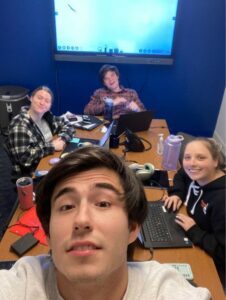
Heritage Society Spotlight
by: Dr. Roger H. Compton ’61, PG ’64
Dean Emeritus, Webb Institute
I was introduced to Webb Institute of Naval Architecture quite by accident when I visited our high school guidance counsellor, Mr. Chiles, who was consoling me for not being the primary appointment in my class to attend the U.S. Naval Academy. He handed me a folded piece of paper with an anchor logo on it and said, “you’re interested in boats – you might be interested in this.” Thus began my life-long involvement with Webb.
After an interview with Admiral Haeberle, I was surprised – but delighted – to be offered a position in the Class of 1961 with 20 other young men from all over the U.S. Over the next four years, we bonded as a class, drank beer and ate pizza at Stango’s, struggled through Benny’s math courses and Doc Joe’s chemistry, metallurgy, and thermodynamics courses, and had many tales to tell about our Winter Work experiences. I enjoy telling my friends, who know nothing about Webb’s class size, that I graduated fifth in my class in both high school and college (without explaining that we had almost 600 in my high school class, but only 10 in the Webb Class of 1961)!
My first full-time job after graduation was at Electric Boat (EB) in Groton, CT, during the early days of the U.S. Navy’s Fleet Ballistic Missile (FBM) program. Exciting stuff! After working for a year in the Naval Architecture Department, I applied for a position in the EB Research Department. I was told that I needed more formal education. As it turned out, that was coincident with Webb offering a civilian master’s degree while working part-time in the newly formed Webb Research Department. George Kerr, Webb ’59, classmate Charlie Pieroth, and I were chosen to be in the first class. I was fortunate to have been able to take a couple of courses at Stevens Institute with Dan Savitsky and to be sent to IBM Headquarters in Manhattan to learn FORTRAN. That training allowed me to become the “computer guy” at Webb and to teach a few sessions of programming to Prof. Otto Karst’s junior math students. That experience, along with the superb mentoring of Bob Zubaly (Webb ’55), Norm Hamlin (Webb ‘44B), and Dean Tom Curran (Webb 1925) were instrumental in getting me to apply for a faculty position at the U.S. Naval Academy (USNA). During my 32-year tenure, my colleagues and I were able to establish an ABET-accredited major in naval architecture and build a world-class towing tank. Among the great young midshipmen that I had the pleasure to mentor, was Tom Kiss (USNA ’88), the son of Ron (Webb ’63) and June Kiss (Hon.).
While in Annapolis, I became involved in a very active community theater culture and, in 1981, was cast as Curly in Oklahoma! Guess who was Laurie? Jill and I have been together – and making music – ever since. Jill has made my life complete.
In August of 1998 I retired from USNA to accept the best job on the planet – to be the Dean of Webb Institute, while enjoying the shortest commute on Long Island. Although it was difficult to leave USNA and Annapolis, a dinner with Ron and June Kiss at which we discussed our mutual “adventure in Glen Cove,” sealed the deal for Jill and me. We thoroughly enjoyed our 13-year tenure during which we were able to introduce a small craft design experience with a formal presentation to an invited panel of professionals to juniors (SD 1), and to encourage Webbies – students and staff – to enjoy and participate in musical and theatrical activities. We were most proud of the success of the Webb Family Singers (aka the WooFS) and the two fully staged productions at our 2010 and 2011 Homecomings. After officially retiring in 2011 – the 50th anniversary of my Webb graduation – we were delighted to enjoy an encore year to teach a couple of naval architecture courses to the Classes of 2017 and 2019. From about 2005 until 2019, we enjoyed getting to know incoming freshman classes with the freehand drawing “coursette” offered the week before classes actually started.
In December 2016, we sold our boats and home on Maryland’s Eastern Shore and moved to a retirement community in Vero Beach, Florida. What we found was a town with many opportunities to sing, play water volleyball, and ride our bikes. Our two real boats have been replaced by three remote-controlled model sailboats – fun, but not quite the same as the real thing!
We are happy to be charter members of the Heritage Society when we named Webb the beneficiary of a life insurance policy and named Webb, along with my kids, Dawn, and Brian, to divide up the balance of our estate.
Without a doubt, I owe everything that I accomplished in my professional career to Webb Institute.

